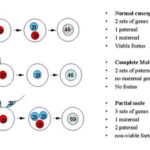
It is common to hear from a woman that she stopped breastfeeding because she didn’t have enough milk. However, in many cases, there’s nothing wrong with the milk supply. Where do mothers get it wrong?
How Breastfeeding Works
During pregnancy your breasts change and develop to be ready to produce milk. You have milk even if your baby is born prematurely. The first milk in the breasts after the birth (and often before) is called colostrum. Colostrum is thick and yellowish and is more concentrated than mature milk. It is rich in protein and antibodies that help to protect your baby from illness. The amount of colostrum is small, but your baby only needs a small amount of milk in his first few days, and he amount of colostrum in your breasts is enough to meet his needs. Mature breastmilk, which is thin and bluish-white, appears a few days after birth and gradually replaces colostrum.
You Have Enough Milk If
Your baby is alert and reasonably contented and does not want to feed constantly. (However, there are times when babies feed more frequently and wake for night feeds even if they’ve already stopped feeding at night). He gains weight and grows in length and head circumference. The skin has healthy color and if you pinch it gently, it springs back into place. You should count at least 6- 8 very wet cloth nappies or at least 5 very wet disposable nappies in 24 hours. The urine should be odorless and very pale in color. A very young baby will usually have 3 or more soft / runny bowel movements each day for several weeks. An older baby is likely to have fewer bowel movements. However, if the baby’s urine is dark and he has formed bowel motions, or if he’s not gaining weight properly, you probably have low milk supply and should seek medical advice.
As for your baby’s behavior, occasional fussiness should not worry you. Many babies are fussy in the evening, and some babies are fussy much of the time. Many mothers never know the reason.
Here are Some Breastfeeding Tips to Help You Increase Milk Supply
Check that the Baby is Well Positioned
If milk is not effectively removed from the breast, then the baby may not get enough milk and the milk supply decreases. Make sure that your baby is nursing efficiently. It is easier for the baby to drain the breast well if he is well attached and positioned. In addition, try massaging your breast as your baby feeds by stroking it towards the nipple on all sides to increase the milk flow.
Related: 11 Different Breastfeeding Positions
Feed Your Baby More Often
Milk production is a demand & supply process. The more the baby sucks, the more milk your body produces. Every baby is different and has different needs, so, in the first weeks or months, you and your baby work together to build your milk supply. Many newborns need 8–12 or more feeds daily. Plus, breastmilk is digested quickly (usually in 1.5-2 hours), so breastfed babies need to eat more often than formula-fed babies. If your baby suddenly increases the frequency of nursings or nurses longer than usual, it often means a growth spurt. This usually lasts a few days to a week and your milk supply increases to meet the baby’s growing needs. If, however, the baby doesn’t nurse as long as he did previously, it is often because as babies grow older, they become more efficient at extracting milk.
Feed Your Baby Whenever He is Hungry
Scheduled feedings interfere with the supply & demand cycle of milk production and can lead to a reduced milk supply. Nurse your baby whenever he is hungry. If the baby is having weight gain problems, try to nurse at least every 1.5-2 hours during the day and at least every 3 hours at night, and offer feeds between the baby’s “regular” meals (some feeds may be only 5–10 minutes long).
Avoid Pacifiers, Bottles and Nipple Shields for a While
Pacifiers and nipple shields require a different type of sucking than nursing, and it is easier for your baby to extract milk from a bottle. As a result, giving a bottle can either cause your baby to have problems sucking properly at the breast, or can result in baby preferring the constant faster flow of milk in the bottle (nipple confusion). That can also significantly reduce the amount of time your baby spends at the breast, which may interfere with the demand & supply cycle and cause your milk supply to drop. Your breast and hands are the best food source and pacifiers for your baby.
Let the Baby Decide the Length of a Feed
Stopping a feeding before your baby ends the feeding himself can interfere with the supply-demand cycle. What’s more, your milk increases in fat content later into a feeding. Some babies may take up to 20 minutes or longer to get to the richer milk. Let your baby finish the first breast before switching to the second. However, if you notice that your baby’s sucking seems to become less strong and he switches to comfort sucking, you may change sides, even up to several times during a breastfeed.
Avoid Supplements
Babies often willingly take a bottle (formula or expressed milk) even after a full feeding at the breast, but if you regularly supplement the baby after nursing, it will interfere with the demand & supply process, and your milk supply will drop.
Maintain a Healthy Diet
The milk will supply your baby with all the nutrients he needs even if you don’t get them yourself, but your body will extract them from your own “supplies”. Make sure you eat well to stay strong and healthy. Consider including a galactagogue (a herb, medication, etc.) that increases milk supply.
Rest Whenever You Can
When your baby falls asleep during the day, you may think it is the best time to wash the yesterday dishes or do your nails, but it can wait. Put aside whatever shores you have and sleep when your baby sleeps. Take the baby into your bed at night – that way, you can offer him a breast before he’s really awake, and after breastfeeding, and your baby can easily drift to sleep instead of getting up and putting him back in the cradle, thus interrupting his and your sleep pattern.
Enjoy Breastfeeding
This is the time when you and your baby are closest. The breastfeeding period will be over before you know it, so relax and enjoy this special time to bond with your baby, fondle him and enjoy that wonderful baby smell of his. Arrange a cozy corner in the house where you can breastfeed without distraction, with a comfortable chair, something nice to eat and drink, a book or TV.
If you’re still concerned about your milk supply, get in touch with a certified lactation consultant. The consultant will make sure your baby is well positioned and latched and will be able to say whether you have enough milk.
Related: How Do I Prepare for Breastfeeding?






